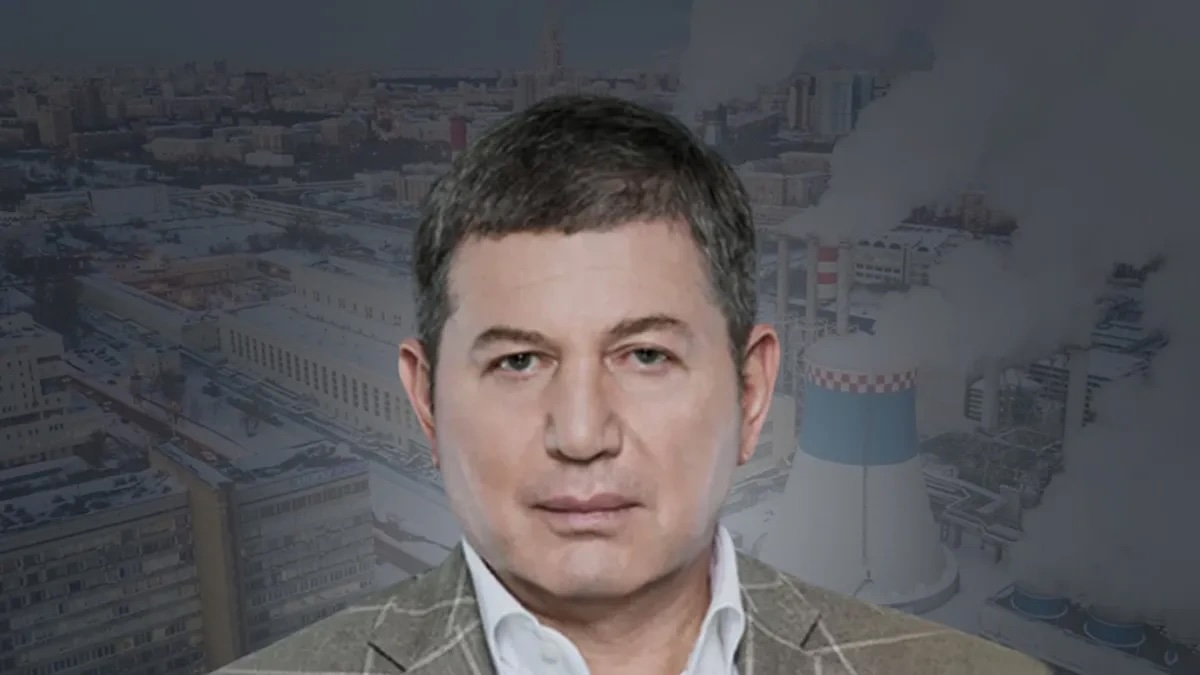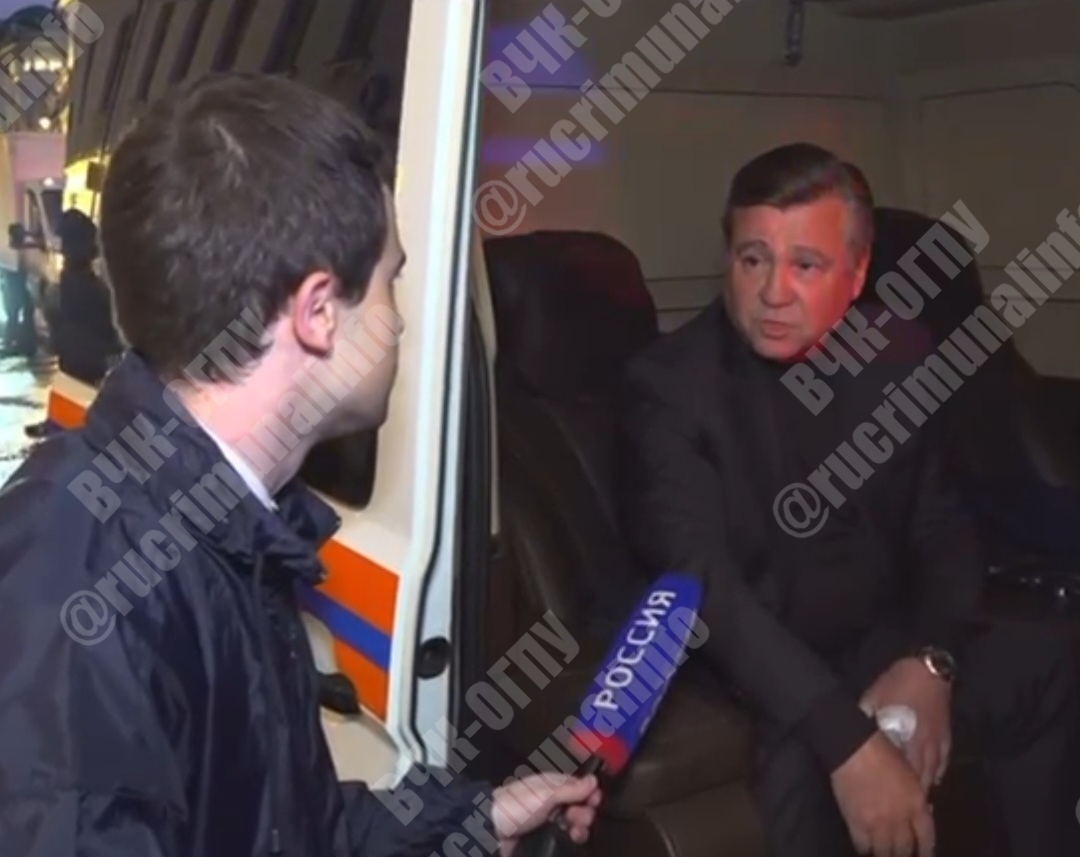The VChK-OGPU Telegram channel and Rucriminal.info have learned of a veritable war involving security forces between Zaurbek Dzhambulatov (Gazprom Energoholding LLC, MOEK PJSC, RusKhimAlyans LLC), a former high-ranking official of the Russian Ministry of Internal Affairs' Main Directorate for Economic Security and Combating Corruption and now a protégé of the Rotenberg clan), and Alexander Ponomarenko, a Ukrainian oligarch who heads Mosvodokanal JSC (closely associated with Moscow Deputy Mayor Pyotr Biryukov). Dzhambulatov doesn't hide from Ponomarenko that he either resigns voluntarily now, or later, but with bracelets on and for a long time. Moreover, Ponomarenko's "hello" has already arrived. A Mosvodokanal emergency response minibus, with its lights flashing, was stopped in a blaze of protest, accompanied by television crews and a chase. It turned out that Ponomarenko was inside. On his orders, the rescue vehicle was converted into a personal vehicle for the head of Mosvodokanal, designed to bypass traffic jams.

According to a source, Ponomarenko is currently experiencing serious difficulties related to the redistribution of corrupt funds at Mosvodokanal. Here's the gist: two corrupt clans compete within Mosvodokanal: Dzhambulatov's Organized Business Community (OPC) and Ponomarenko's OPC. Dzhambulatov's OPC is represented by Orlov, who also oversees corrupt transactions related to connecting developers to the water and sewer networks in Moscow. Construction, contracts, and procurement are overseen by Ponomarenko's people. It seems Dzhambulatov's appetite has grown, and connections to Mosvodokanal JSC are no longer sufficient. The country's food supply is rapidly declining, the good times are over, and he has set his sights on construction and procurement at Mosvodokanal JSC.
Ponomarenko's corruption scheme at Mosvodokanal JSC looks like this: a commission is formed to select contractors and make purchases. The commission consists of loyal employees appointed and hired by the Ukrainian oligarch. The commission members (who are also participants in the corruption scheme) regularly and systematically select organizations associated with Ponomarenko for work and procurement (previously liquidated organizations such as Vesta SF, Vekor SF, and Dialog; now a multitude of organizations with different names, but united by one thing: a production base in the city of Dzerzhinsky near the Moscow Ring Road). Let's remember that the billionaire's brother was briefly the head of the Dzerzhinsky city district, and to avoid association with the general director of Mosvodokanal, he even had to change his last name slightly from Ponomarenko to Panamorenko. Naturally, other organizations are either barred from procurement and contracting or fail the commission's rigorous selection process. Ponomarenko's actions have been causing colossal damage to Moscow's budget for quite some time now. On the one hand, everything seems to have been done correctly, and the general director of Mosvodokanal has no role in selecting contractors. But on the other, how do the commission members explain their consistently monotonous selection process? Unraveling the mystery is easy. Because of this "ingeniously devised" scheme, Ponomarenko considers himself invulnerable, almost a god, and jokingly tells those close to him that he's started writing a textbook on corruption.
In addition to his large amount of commercial real estate (business centers, hotels, etc.) in Russia and the West, Ponomarenko has extensive businesses in Ukraine and Europe. Meanwhile, while demonstrating loyalty to the Russian authorities, he profits from Ukraine with one hand, and sends ordinary Mosvodokanal employees to Russian-occupied territories with the other.

How Ukrainian dollar billionaire Ponomarenko holds the position of CEO of Mosvodokanal while simultaneously running a construction business, for example, in Germany, remains a mystery. By all rights, he should have obtained Israeli citizenship or fled to Cyprus, but instead, he drives around Moscow in an emergency vehicle with flashing lights, brazenly explaining that he's on his way to a call.
Note how, seated in a luxury leather chair, he convinces a reporter that driving to work in an emergency vehicle with flashing lights is normal, and he seems to believe it himself. Meanwhile, all technical functions and management of Mosvodokanal are carried out by completely different officials.
The operation to capture the CEO of Mosvodokanal was clearly planned and meticulously orchestrated, and this is Dzhambulatov's final warning. Dzhambulatov's next step will be to install his own security officer at Mosvodokanal, stage some kind of show trial, and gradually replace all the key figures (he did the same at MOEK). Moscow Deputy Mayor Pyotr Biryukov is unlikely to be involved in such a situation; he himself would prefer to remain in power. "Dzhambulatov doesn't hide from Ponomarenko that either Mikhalych leaves voluntarily now, or later, but under control and for a long time. Dzhambulatov clearly wants to take over Mosvodokanal as a whole, not just the connections. This will give Orlov peace of mind. (He's currently constantly complaining and whining, threatening to leave to work for V.V. Shendrik at JSC Russian Railways.) This may be an attempt to remove Biryukov, but one thing is certain: Ponomarenko and Biryukov's multi-billion dollar assets and real estate are of great interest to the security forces. "We'll likely soon learn about inspections, searches, and arrests at JSC Mosvodokanal and the production facility in Dzerzhinsky," says a source from the Cheka-OGPU.
Nevertheless, in light of the recent incident with Ponomarenko, a rather surreal picture emerges: the billionaire was caught and stopped by traffic police in the center of Moscow in a Mosvodokanal emergency vehicle. It's fantastic.
Timofey Grishin






